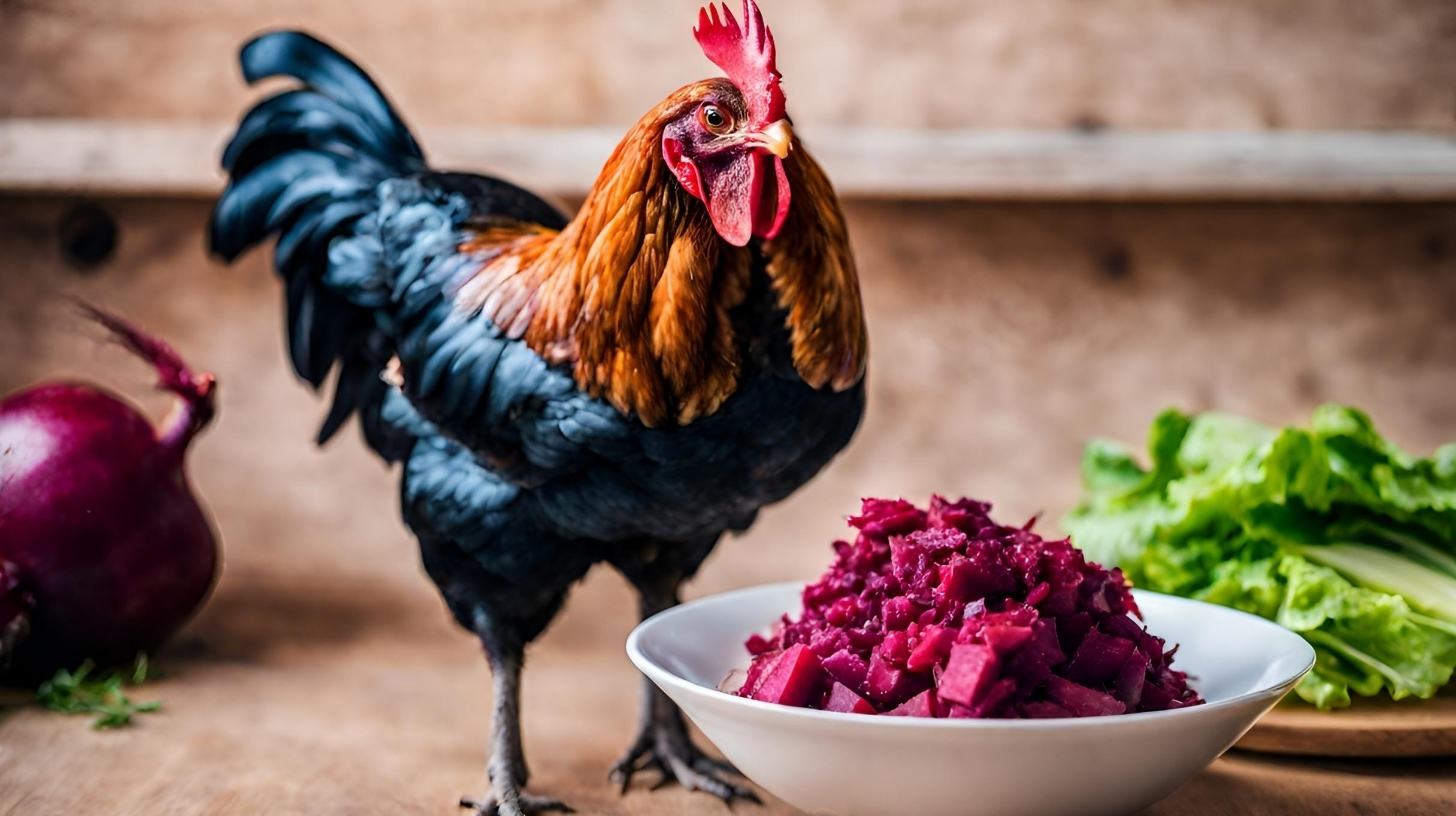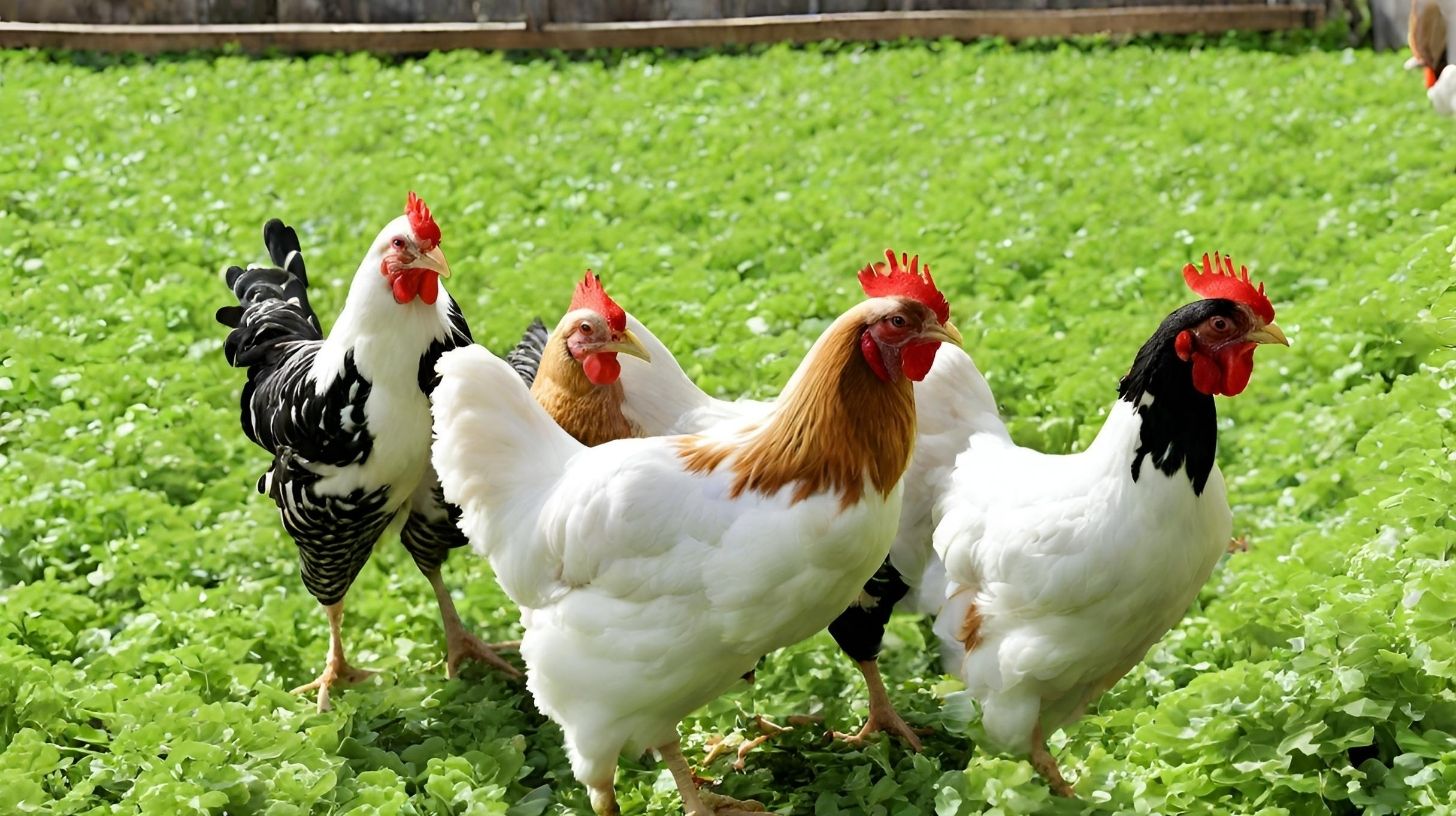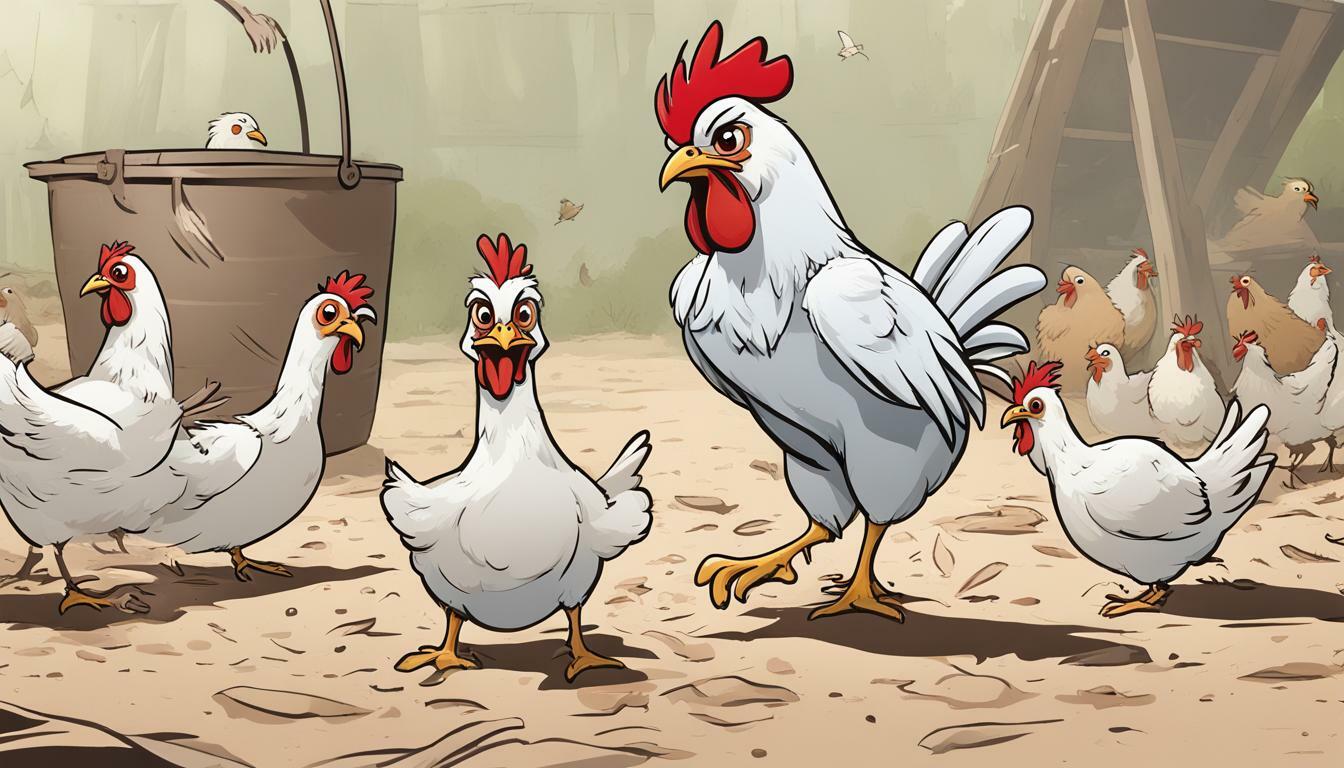Can Chickens Eat Quinoa?
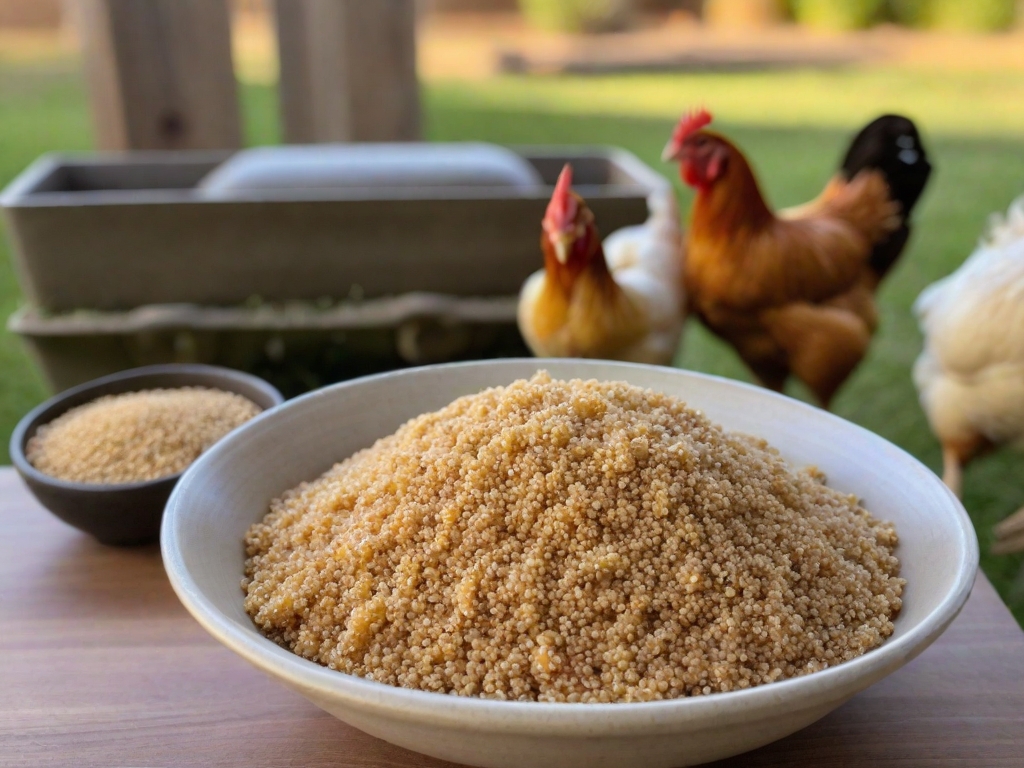
Table of content:
Quinoa has become an increasingly popular “superfood” for humans in recent years due to its stellar nutritional profile. This naturally gluten-free seed is packed with protein, fiber, vitamins, and minerals.
With all these health benefits for people, some chicken owners wonder whether quinoa could also be a healthy treat for their flock. We’ll explore whether chickens can eat quinoa and how to safely incorporate it into their diet.
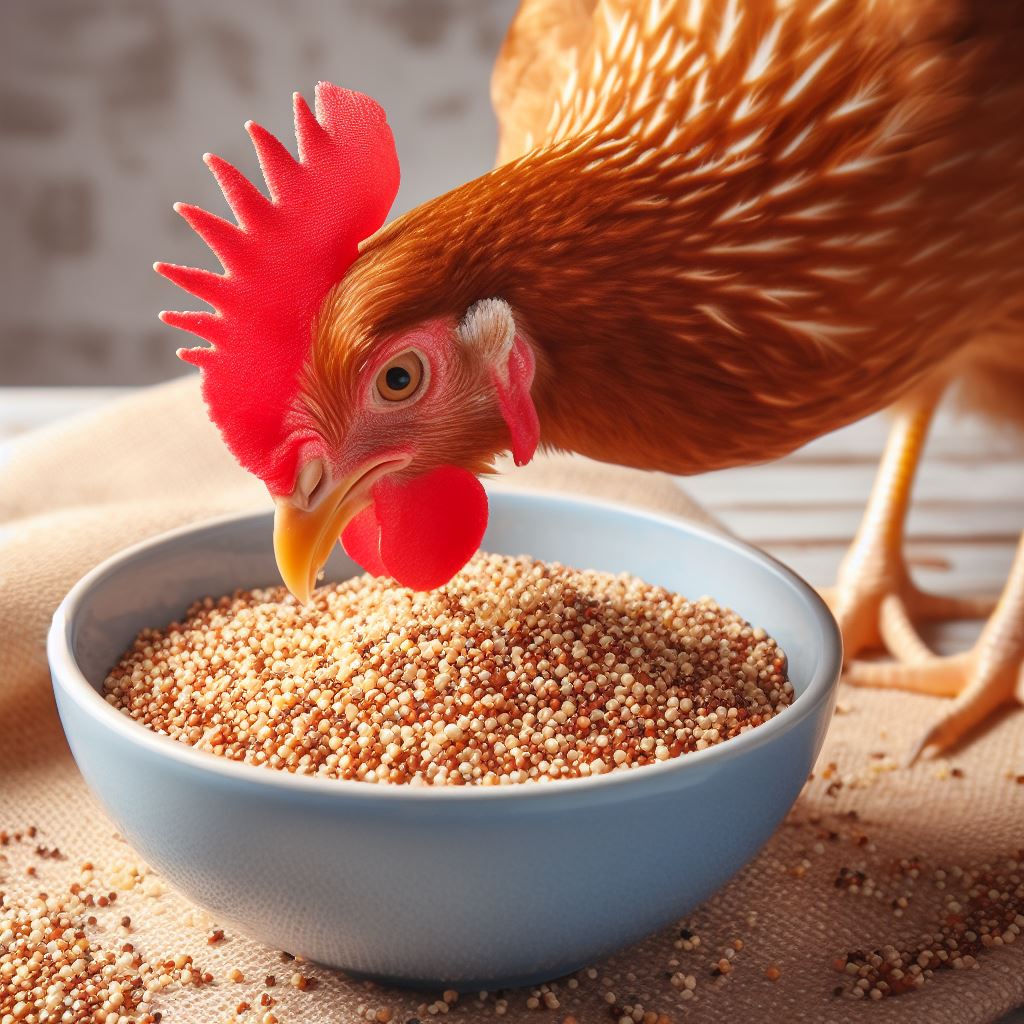 Is Quinoa Safe For Chickens To Eat?
Is Quinoa Safe For Chickens To Eat?
Quinoa is generally considered a safe and healthy food for chickens. Here’s what chicken owners need to know about feeding this nutritious seed:
Quinoa provides valuable nutrients
Quinoa contains high levels of protein, amino acids, fiber, magnesium, B vitamins, iron, potassium, calcium, phosphorus, vitamin E and antioxidants. This impressive nutritional profile makes it a beneficial supplement to a chicken’s diet. The protein and amino acids support muscle growth and egg production while the minerals promote healthy bones, nerves and metabolism.
It offers variety to their diet
Chicken feed is specially formulated to provide complete and balanced nutrition for birds. However, chickens enjoy and benefit from some supplementary foods. Quinoa can add variety to their diet which promotes good gut health.
Moderation is key
While quinoa can be a nutritious treat for chickens, it should be fed in moderation. Quinoa should make up no more than 5-10% of a chicken’s total daily food intake. Too much could lead to weight gain or nutritional imbalances.
Phytates may limit digestibility
Quinoa contains phytic acid or phytates that bind to minerals and reduce their absorption. Chickens are able to digest phytates better than humans but soaking, sprouting or cooking the quinoa can help increase nutrient availability.
Assess tolerance
It’s best to introduce new treats slowly. Monitor your flock after first feedings and remove any quinoa if chickens have adverse reactions like diarrhea. Reduce the amount or frequency of loose droppings.
Overall, quinoa makes a fine supplemental addition to a backyard flock’s feeding regimen. Let’s look at the best ways to feed it.
How To Feed Quinoa To Chickens
Quinoa is very small and round so chickens may have difficulty eating it. Here are some tips for serving it successfully:
- Soak before feeding – Soak quinoa for a few hours or overnight prior to feeding. This softens the seed coat which releases saponins that deter consumption. Soaking allows the quinoa to absorb water and start germinating which increases digestibility.
- Sprout it – Sprouting quinoa for one or two days further improves digestion and unlocks more nutrients. Chickens will enjoy hunting for the sprouts.
- Cook it – Cooked quinoa is easier for chickens to eat and digest. Boil it until soft then let it cool before feeding.
- Mix with crumbles – Mix small amounts of soaked, sprouted or cooked quinoa into their regular feed. This prevents waste and encourages intake.
- Use as scatter feed – Scatter soaked or cooked quinoa in their run or coop for chickens to forage. This satisfies their scratching instincts. Monitor consumption and remove any uneaten quinoa within an hour.
- Offer in moderation – Only supplement their diet with quinoa a couple times a week. Around 1-2 tablespoons per bird per feeding is sufficient.
Tips For Feeding Quinoa To Chickens:
- Always monitor your flock’s droppings after introducing new foods.
- Reduce amount or frequency of quinoa if any intolerance signs appear.
- Check for uneaten quinoa and remove within an hour to prevent spoilage.
- Cook or soak quinoa to increase digestibility and prevent crop impaction.
- Intersperse with their regular feed in a ratio of no more than 10% quinoa.
- Offer only washed quinoa free of pesticides, chemicals or other contaminants.
- Store any uneaten soaked or cooked quinoa in the refrigerator for up to 5 days.
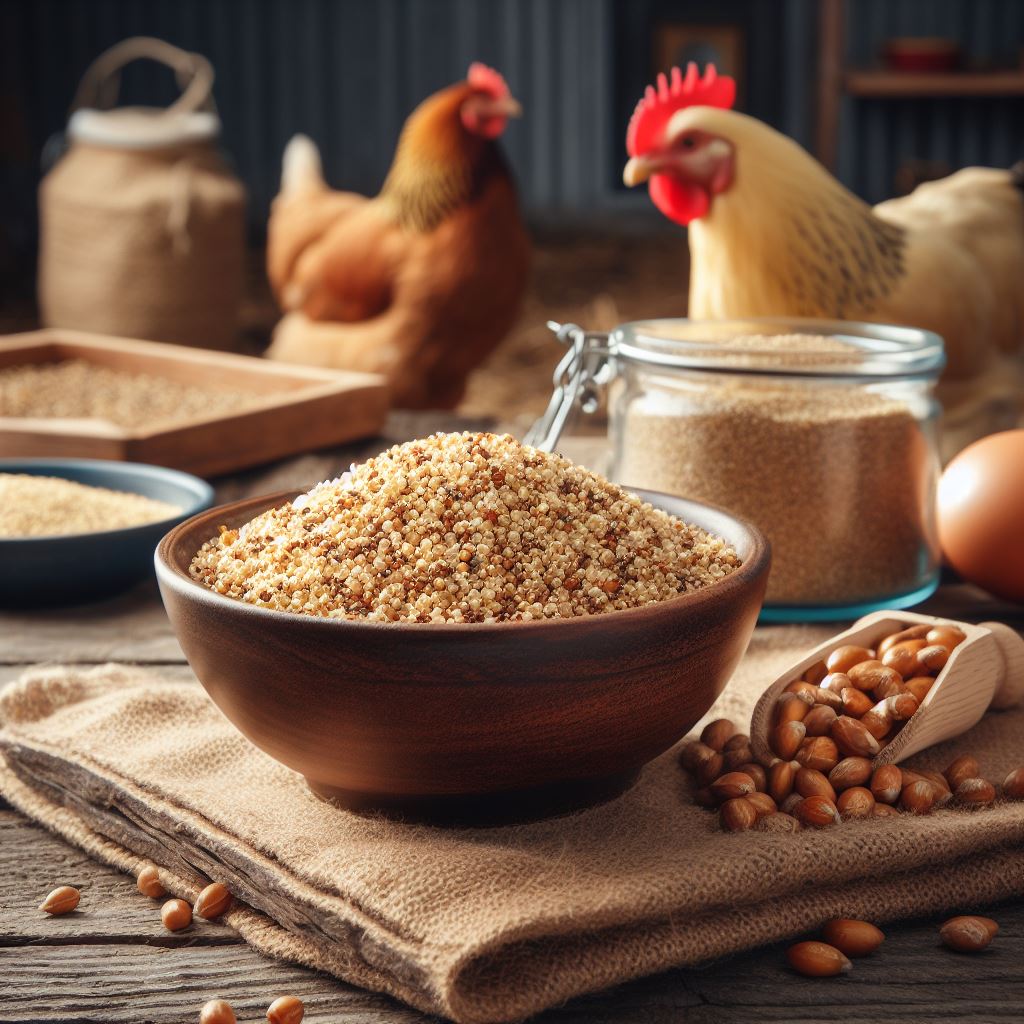 Quinoa Serving Ideas For Chickens
Quinoa Serving Ideas For Chickens
Here are some creative ways to serve up quinoa for your flock:
Quinoa salad – Combine cooked quinoa with chopped greens, vegetables and a little olive oil. Try adding kale, carrots, peas, corn, beans, or broccoli.
Quinoa porridge – Cook quinoa in extra water until it makes a soft porridge. Let it cool before serving.
Quinoa sprout salad – Mix sprouted quinoa together with other sprouts like wheatgrass, sunflower, buckwheat or lentil sprouts.
Quinoa treats – Mix quinoa with cornmeal, omega-3 eggs, and baked treats. Shape into bite-size pieces and bake as healthy snacks.
Breakfast quinoa – Cook quinoa in chicken broth with scrambled eggs. The eggs provide extra protein.
Quinoa fruit salad – Toss quinoa with bite-sized fruit pieces like melon, berries, mango, apple, pear, banana or pineapple.
Quinoa pops – Pop quinoa like popcorn for a crunchy, fun treat! Heat quinoa with a bit of oil in a pot until the kernels burst.
Is Cooked Quinoa Safe For Chickens?
Leftover cooked quinoa meant for human consumption is fine to feed chickens as long as it is prepared safely. Here are some precautions to take:
- Don’t feed chickens raw quinoa made for humans as it likely still contains saponins from the outer coating. Only offer soaked, sprouted or cooked quinoa to birds.
- Check for any seasonings or ingredients chickens shouldn’t consume like spices, salt, onions, garlic, hot sauce or other flavors. Pick out any add-ins.
- Ensure the quinoa is properly stored after cooking. Only feed chickens quinoa kept refrigerated at safe temperatures within 5 days of cooking. Discard any with mold or off smells.
- Plain cooked quinoa with nothing added is safest. Avoid quinoa with oils, dressings or other liquids that can spoil.
- Don’t leave cooked quinoa out for chickens to eat at will. Monitor intake and remove any uneaten portions within an hour.
In summary, well-prepared plain cooked quinoa makes a nutritious supplemental feed chickens will relish. Take care to introduce new foods slowly while assessing tolerance. With a little care and moderation, quinoa can provide a beneficial source of extra protein, amino acids, and antioxidants for your flock. A half cup serving once or twice a week adds valuable variety to a chicken’s diet.
Frequently Asked Questions
Can chickens eat uncooked quinoa?
Chickens can eat uncooked quinoa but it’s not recommended. Raw quinoa contains saponins that are unpalatable and deter chickens from eating it. Soaking, sprouting or cooking the quinoa helps remove these compounds. Cooked quinoa is also easier for chickens to digest.
What are the risks of feeding chickens quinoa?
When fed properly in moderation, quinoa poses little risk. Consuming too much could lead to diarrhea, weight gain or nutritional imbalance. Make sure quinoa makes up only a small portion of their diet. Improperly prepared quinoa may cause crop impaction. Always cook or soak quinoa before feeding.
Do chickens like eating quinoa?
Most chickens enjoy eating quinoa, especially when mixed into their feed or offered as a scattered treat. Its small size and rounded shape is similar to scratch grains they forage naturally. Quinoa’s nutty taste and crunchy popped texture appeal to chickens too.
Is quinoa high in fat for chickens?
No, quinoa is naturally low in fat, containing only about 6 grams of fat per cup. This makes quinoa a lean, healthy supplement for chickens rather than a high-fat treat. It provides high quality protein and nutrients without excess fat.
Can baby chicks eat quinoa?
Baby chicks under 4 weeks old should not eat quinoa. Their digestive systems are too immature to properly process it. Wait until chicks are fully feathered and at least 8 weeks old before introducing small amounts of soaked, sprouted or cooked quinoa along with their starter feed.
Conclusion
Quinoa can be a nutritious occasional treat for backyard chickens when fed properly. Make sure to soak, sprout or cook quinoa before serving to aid digestibility.
Introduce it slowly and in moderation, mixing just a spoonful or two into their feed a couple times a week. Monitor your flock for any adverse reactions.
Served thoughtfully, quinoa’s stellar nutritional profile provides chickens with extra protein, amino acids, fiber, minerals and antioxidants for optimal health. This versatile “supergrain” gives them beneficial variety in their diet.
Welcome. I’m Adreena Shanum, the proud owner of this website, and I am incredibly passionate about animals, especially poultry. I founded adreenapets.com as a labor of love, stemming from my desire to share my knowledge and experiences with poultry enthusiasts worldwide.


